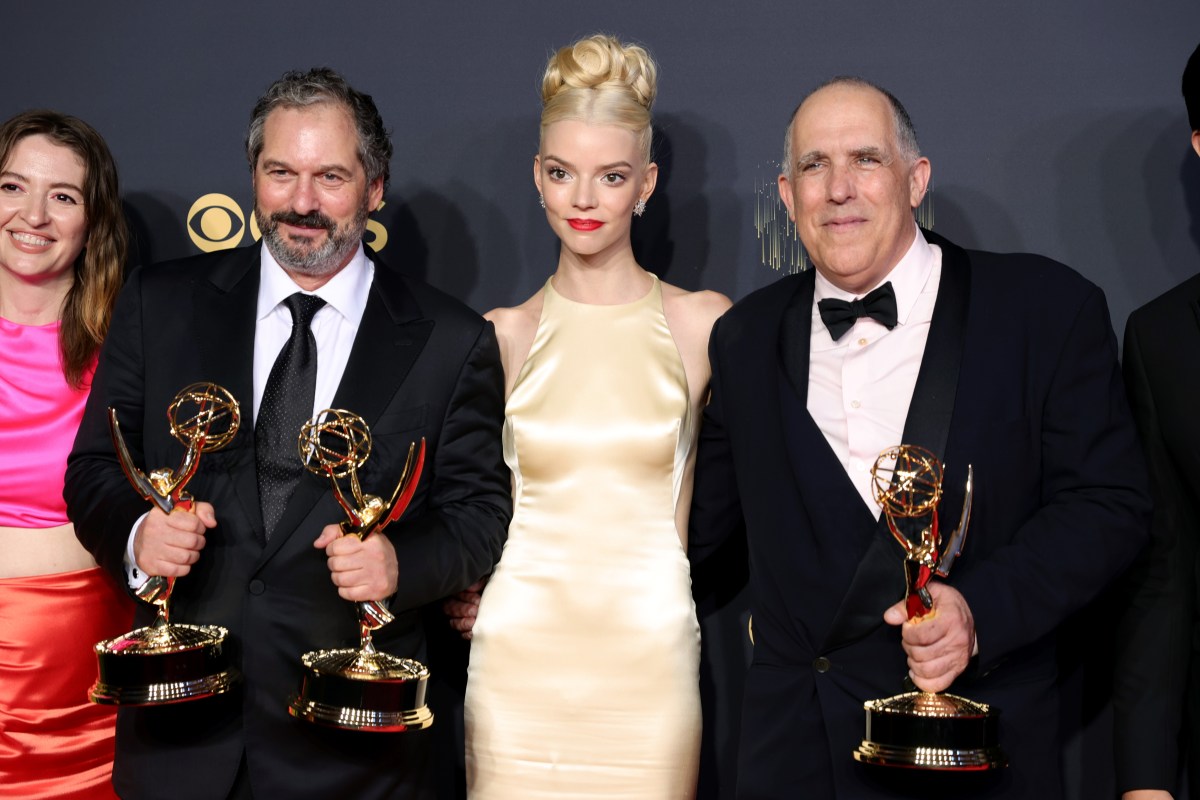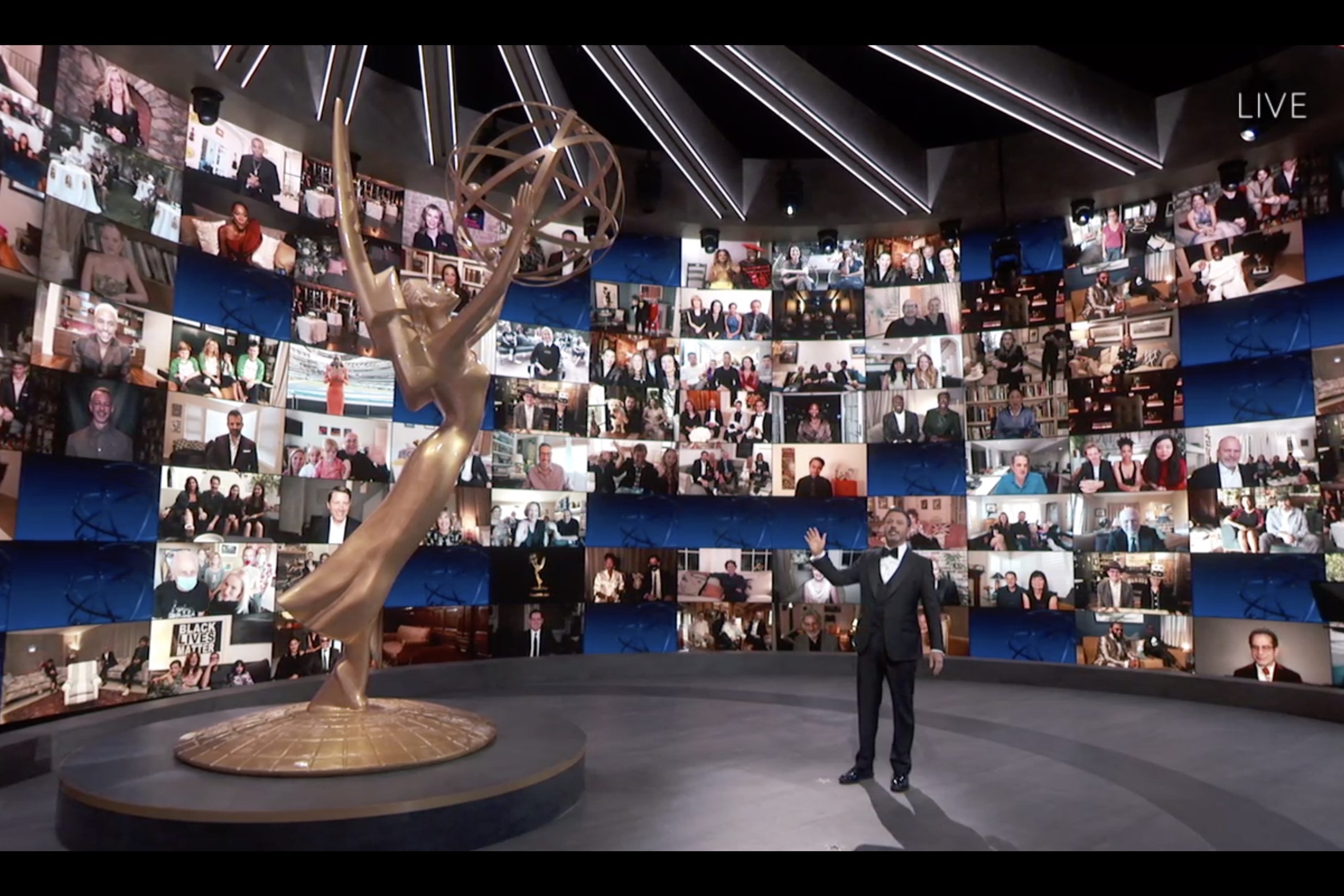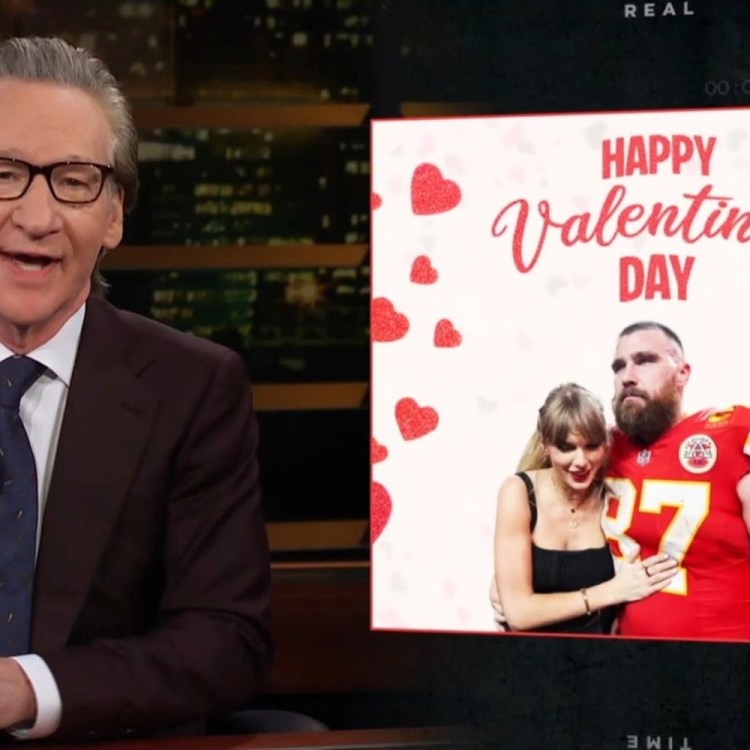Over the years, award shows have provided us with some pretty memorable acceptance speeches, whether they stood out for being especially moving, inspiring or funny. But at the 73rd Annual Emmy Awards on Sunday night, the most unforgettable speech of the evening earned that distinction not for its actual content but simply the fact that it felt like it would never end.
While accepting the award for Outstanding Directing for a Limited or Anthology Series or Movie for his work on The Queen’s Gambit, Scott Frank brushed off the “get off the stage” music not once but three times, reading a prepared speech from two full-length pages he’d shoved into his pocket and blowing past his allotted 45 seconds to speak for three minutes and 28 seconds — more than four and a half times as long as he was supposed to.
Viewers couldn’t have asked for a more perfect embodiment of white male privilege and entitlement as a visibly annoyed Frank reacted to the orchestra’s attempts to play him off by saying, “Really? No,” and making a dismissive hand gesture. The second time they started playing, he said, “Seriously, stop the music,” again waving his hand as if he were shooing away a fly and pressing on. The third time, he insisted, “I’m almost done.” Each time, when he commanded them to stop playing the music, they actually stopped the music. Who knew it was that easy?
It’s worth noting Frank wasn’t the only one to exceed his allotted time. Debbie Allen went long with her speech after becoming the first Black woman to win the Governors Award — an award that is presented for “outstanding achievement in the arts and sciences or management of television which is either of a cumulative nature or so extraordinary and universal in nature as to go beyond the scope of the Emmy Awards presented in the categories and areas of the competition” — saying, “Honey, turn that clock off, I ain’t paying no attention to it, turn it off.” But Allen and Frank’s situations couldn’t be more different. For one, Allen’s award essentially amounts to a lifetime achievement award, and it’s generally understood that lifetime achievement winners typically will deliver a longer speech than others to acknowledge everyone who has helped them along the way and impart some wisdom. Her win is also historic, and she represents a demographic that has been ignored and underrepresented in Hollywood for far too long; she deserves to go a little long when so many of her peers have been unjustly cut off in the past.
But even beyond that, Allen is a celebrity, while Frank is a behind-the-scenes creator who the vast majority of viewers were seeing for the first time last night. There’s gotta be a certain degree of reading the room in a situation like that, and Frank should know that most people tuning in were waiting for him to wrap it up so they could get to the acting awards they actually care about.
On a night when, despite a record 44% of the acting nominations going to non-white performers, BIPOC actors were completely shut out and white performers swept all 12 acting categories, Frank’s speech served as an acute, annoying microcosm of the state of Hollywood writ large: it’s run by a class of vainglorious, mostly white men who feel entitled to the space, while those who don’t look like them have to scratch and claw their way to a sliver of recognition. There are more charming ways to brush past the “wrap it up” music, but part of what made Frank’s speech so galling is that he seemed incredulous that anyone would dare interrupt him. People of different demographics, meanwhile, have come to expect that treatment.
That discrepancy was only highlighted when Frank’s monologue was followed by Michaela Coel, who delivered the best speech of the night well within her allotted time. Coel, who made history as the first Black woman to win Outstanding Writing for a Limited or Anthology Series or Movie with her work on I May Destroy You, kept it concise, but her message was powerful: “Write the tale that scares you, that makes you feel uncertain, that isn’t comfortable,” she said. “I dare you. In a world that entices us to browse the lives of others to help us better determine how we feel about ourselves, and to, in turn, feel the need to be constantly visible — for visibility, these days, seems to somehow equate to success — do not be afraid to disappear. From it, from us, for a while. And see what comes to you in the silence.”
Frank wasn’t the only Queen’s Gambit winner to deliver an embarrassing speech, either. After the show took home the award for Outstanding Limited or Anthology Series, producer William Horberg delivered a cringe-y speech in which he objectified his lead actress while praising the way the show fights sexism in the same breath. “What can I say? You brought the sexy back to chess, and you inspired a whole generation of girls and young women to realize that patriarchy has no defense against our queens,” he said.
The implication that stories about women need to be “sexy” — even when they’re about women whose accomplishments (like, say, being a genius chess player) have absolutely nothing to do with their physical appearance — is, of course, the very definition of patriarchy. And the optics of an older man managing to reduce his lead actress’s nuanced, critically acclaimed performance to “bringing the sexy back to chess” and spitting out platitudes about dismantling the patriarchy while the women involved with the show stand silently behind him are not great, especially when his show is currently being sued by the first female chess grandmaster for belittling her accomplishments and falsely claiming she never faced men.
On a night that could have been about the people who have historically been dismissed by Hollywood finally getting their due, this year’s Emmys were frustratingly similar to those of the past, with a parade of white men patting themselves on the back and assuming that their rambling, trite speeches are worth eating into someone else’s time. Fingers crossed they heed Michaela Coel’s advice next year, and disappear for a while.
This article appeared in an InsideHook newsletter. Sign up for free to get more on travel, wellness, style, drinking, and culture.























